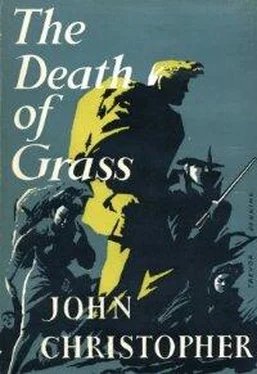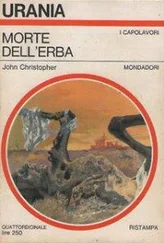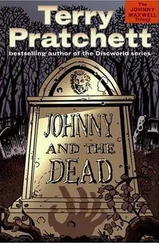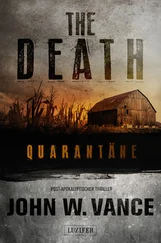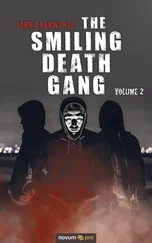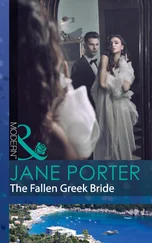Pirrie said thoughtfully: “We could ambush parties as they came through—there’s enough cover about a hundred yards back.”
There aren’t enough of us to make a press-gang {124} 124 press-gang: group of men employed, particularly in the wars against Napoleon, to take men for the armed services
,” John said. “We need volunteers. After all, if they have guns we should have to give them back to them.”
Roger said: “What do we do, then? Make camp? By the side of the road?”
“Yes,” John said. He looked at his bedraggled group of followers. “Let’s hope not for long.”
They had to wait over an hour for their first encounter, and then it was a disappointing one. They saw a little party struggling up the road from the valley, and, as they drew nearer, could see that they were eight in number. There were four women, two children—a boy about eight and a girl who looked younger—and two men. They were wheeling two perambulators, stacked high with household goods; a saucepan fell off when they were about fifty yards away and rolled away with a clatter. One of the women stooped down wearily to pick it up.
The two men, like their womenfolk, looked miserable and scared. One of them was well over fifty; the other, although quite young, was physically weedy.
Pirrie said: “I hardly think there is anything here that will be to our advantage.”
He and Roger were standing with John on the road itself, holding their guns. The women and children were resting on a flat-topped stone wall nearby.
John shook his head. “I think you’re right. No weapons, either, I should think. One of the kids may have a water-pistol.”
The approaching party stopped when they caught sight of the three men standing in the road, but after a whispered consultation and a glance backwards into the smouldering valley, they came on again. Fear stood on them more markedly now. The older man walked in front, and tried to look unconcerned, with poor success. The girl began to cry, and one of the women tugged at her, simultaneously frantic and furtive, as though afraid the noise would in some way betray them.
As they passed, in silence, John thought how natural it would have been, a few days before, to give some kind of greeting, and how unnatural the same greeting would have sounded now.
Roger said quietly: “How far do you think they’ll get?”
“Down into Wensleydale, possibly. I don’t know. They may survive a week, if they’re lucky.”
“Lucky? Or unlucky?”
“Yes. Unlucky, I suppose.”
Pirrie said: “They appear to be turning back.”
John looked. They had travelled perhaps seventy-five yards farther on along the road; now they had turned and were making their way back, still pushing the perambulators. By turning, they had got the rain in their faces instead of on their backs. The little girl’s mackintosh gaped at the neck; her fingers fumbled, trying to fasten it, but she could not.
They stopped a short distance away. The older man said:
“We wondered if you was waiting for anything up here—if there was anything we could tell you, maybe.”
“John’s eyes examined him. A manual worker of some kind; the sort of man who would give a lifetime’s faithful inefficient service. On his own, under the new conditions, he would have small chance of survival, his only hope lying in the possibility of attaching himself to some little Napoleonic gangster of the dales who would put up with his uselessness for the sake of his devotion. With his present entourage {125} 125 entourage: those attending the leader
, even that was ruled out.
“No,” John said. There’s nothing you can tell us.”
“We was heading across the Pennines,” the man went on. “We reckoned it might be quieter over in those parts. We thought we might find a farm or something, out of the way, where they’d let us work and give us some food. We wouldn’t want much.”
A few months ago, the pipe-dream {126} 126 pipe-dream: vision (based on the extravagant fantasy induced by smoking opium)
had probably been a £75,000 win on the football pools. Their chances of that had been about as good as the chances of their more modest hopes were now. He looked at the four women; only one of them was sufficiently youthful to stand a chance of surviving on sexual merits, and with youth her entire store of assets were numbered. They were all bedraggled. The two children had wandered away, in the direction of the wall where Ann and the others were sitting. The boy was not wearing shoes, but plimsolls, which were wet through.
John said harshly: “You’d better get on, then, hadn’t you?”
The man persisted: “You think we might find a place like that?”
“You might,” John said.
“All this trouble,” one of the women said. “It won’t last long, will it?”
Roger looked down into the valley. “Only till hell freezes over. {127} 127 hell: till hell freezes over, i.e. an impossibility
”
“Where was you thinking of heading?” asked the older man. “Were you thinking of going into Yorkshire as well?”
John said: “No. We’ve come from there.”
“We’re not bothered about which way we go, for that matter. We only thought it might be quieter across the Pennines.”
“Yes. It might.”
The mother of the two children spoke: “What my father means is—do you think we could go whichever way you’re going? It would mean there was more of us, if we ran into any trouble. I mean—you must be looking for a quiet place, too. You’re respectable people, not like those down there. Respectable folk should stick together at a time like this.”
John said: “There are something like fifty million people in this country. Probably over forty-nine million of them are respectable, and looking for a quiet place. There aren’t enough quiet places to go round.”
“Yes, that’s why it’s better for folks to stick together. Respectable folk.”
“How long have you been on the road?” John asked her.
She looked puzzled. “We started this morning—we could see fires in Sedburgh, and they were burning the Follins farm, and that’s not more than three miles from the village.”
“We’ve had three days’ start on you. We aren’t respectable any longer. We’ve killed people on our way here, and we may have to kill more. I think you’d better carry on by yourselves, as you were doing.”
They stared at him. The older man said at last:
“I suppose you had to. I suppose a man’s got to save himself and his family any way he can. They got me on killing in the First War, and the Jerries {128} 128 Jerries: Germans (army slang)
hadn’t burned Sedburgh then, nor the Follins farm. If you’ve got to do things, then you’ve got to.”
John did not reply. At the wall, the two children were playing with the others, scrambling up and along the wall and down in a complicated kind of obstacle race. Ann saw his glance, and rose to come towards him.
“Can we go with you?” the man said. “We’ll do as you say—I don’t mind killing if it’s necessary, and we can do our share of the work. We don’t mind which way you’re going—it’s all the same as far as we’re concerned. Apart from being in the army, I’ve lived all my life in Carbeck. Now I’ve had to leave it, it doesn’t matter where I go.”
“How many guns have you got?” John asked.
He shook his head. “We haven’t got any guns.”
“We’ve got three, to look after six adults and four children. Even that isn’t enough. That’s why we’re waiting here—to find others who’ve got guns and who will join up with us. I’m sorry, but we can’t take passengers.”
Читать дальше
